
As part of TCM’s tribute to chemistry and physics in film, A BEAUTIFUL MIND (2001) will play on the network tonight. The choice has sparked mixed reactions among fans of TCM on social media today.
In the past 3 years of this blog’s existence, I have spent considerable time discussing the meaning of the term “classic film.” It is a vague description, one that means different things to different people and which tends to polarize those who are loyal to their own particular definition. In this age of social media, I have seen countless debates on the subject on Twitter and Facebook, conversations that get especially heated when TCM decides to show a film that was made relatively recently.
Fans of old films have cause to be wary of TCM turning its back on this programming. The channel AMC, which is now famous for its original content (Mad Men, Breaking Bad) used to be very much like TCM, airing black and white films from the 1930s through the 1960s without commercial interruption, punctuated by its own original educational programming about film history and culture. But in 2002, AMC decided that the cable subsidies they were receiving were not enough to keep the channel going, and began to allow advertising which changed their programming focus to a general one in order to keep sponsors happy.
Though I personally do not worry about TCM shifting its focus (I direct you to the popularity of the TCM Classic Film Festival and the TCM Classic Cruise, a testament to how popular their programming is), I have noticed that they seem to be thinking outside the box with their definition of “classic film,” which is upsetting some viewers who have a very clear concept of what a classic film should look like. Tonight, they are showing A Beautiful Mind, the 2001 Best Picture winner that tells the story of mathematician John Nash and his struggle with schizophrenia. TCM’s Facebook page was alight this morning with a debate on whether or not this is a classic film, questions as to why the network was showing it and counter-attacks questioning whether TCM should even be questioned about their programming.
As I’ve stated before, my own personal definition of a classic movie when I am asked about it is a movie made more or less between the confines of 1916 (when filmmakers were really starting to “get” moviemaking in my opinion) and the fall of the production code in 1968–with several exceptions to that rule allowing for great and culturally significant movies pre-1916 (such as “A Trip To the Moon” and The Great Train Robbery) and post-1968 (such as Cabaret and Amadeus). I would also say that not every movie made between that time period can be considered a classic, but specifying a specific time period helps to get around some of the vagueness and muck that comes along with trying to make a clear-cut definition of anything.
A scene from Amadeus (1984), a movie I consider to be a classic because of the positive cultural significance and lasting influence it has enjoyed.
A Beautiful Mind is a fantastic movie, no question about it. Phillip Glass’ haunting, almost mystical score along with Oscar-winning performances by Russell Crowe and Jennifer Connelly make this movie perhaps one of the technical best of the past 15 years. Would I call it a classic? According to my own personal definition, no. It has not marinated in our culture long enough for us to see if it stands the test of time, and though it won several awards upon its release it has not proven to be culturally pervasive enough to warrant an exception to the rule.
However, I am open to discussion on this. What is your personal definition of a classic film? Would you consider A Beautiful Mind to be a classic, and worthy of a spot in TCM’s primetime lineup? I look forward to hearing from you in the comments section, and I will also pose this question to my readers on the Backlot Commissary group on Facebook. Feel free to join the discussion here or there!

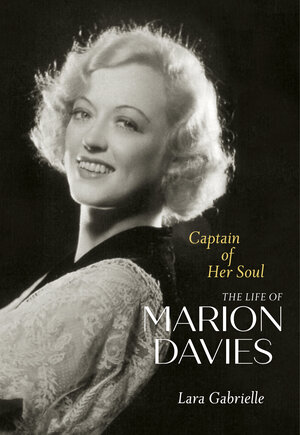


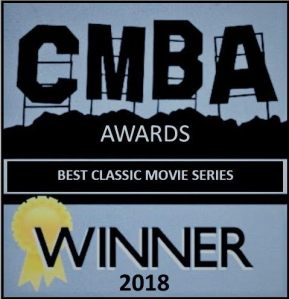



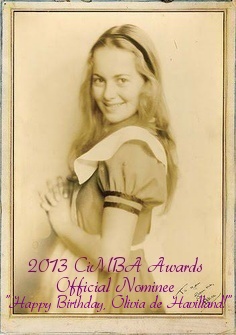









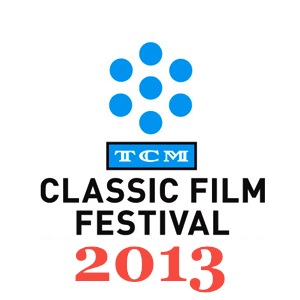



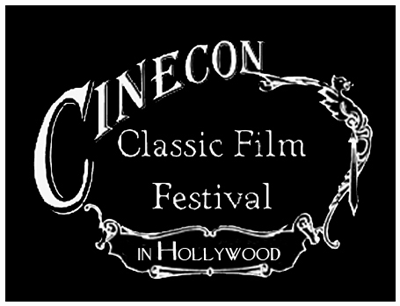




_03.jpg)
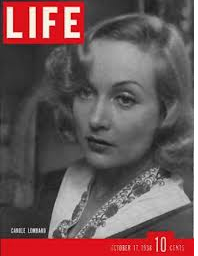

Lara, I agree that it makes sense that one shouldn’t be too quick to brand a film as “classic” when it’s still relatively new. That said, we can never really predict whether a popular film will stand the test of time and prove itself a classic. Heck, IT’S A WONDERFUL LIFE was considered a flop at first, and it’s long been considered a classic movie. As you put it so well, “It has not marinated in our culture long enough for us to see if it stands the test of time.” As for me, I pretty much just like what I like, no matter what others think. 🙂 I guess it’s the movie lover’s version of “hurry up and wait”! Excellent post, my friend, as usual, and I hope life is treating you and yours well!
The problem with defining a fixed time period for classics is that no new movies can enter the canon of “classics” no matter how long they’ve stood the test of time. Other terms like “Silent Era” “Pre-Code” and “Golden Age” are suitable for fixed time periods, but not “classics.”
So I prefer a definition based on “at least X years old (and retaining at least some cultural significance)” That “retaining cultural significance” will always be fuzzy, but we can do a solid job of defining X.
Personally, I find it hard to think of any movie as “classic” if I saw it in a theater in its initial release. The thing is, I’m now older than most film-watchers (although I still feel really young.) Judging by the data here (http://www.nielsen.com/us/en/newswire/2013/popcorn-people-profiles-of-the-u-s-moviegoer-audience.html) the median film audience member is about 35 years old. So we could set X at 35. Or we could factor in that movies seen in your first 5 years of life don’t really count and set X at 30 (which is a convenient, round number.) That also conveniently puts your example of Amadeus right under the limit.
Now people will object that 30 years puts some 80’s films in the “classic” category. But here’s the dirty secret about that–some 80’s films are classics, and the only reason to reject them is that it makes you feel old. 80’s films will have to become classic someday, or “classic” becomes a stagnant category.
Very, very interesting, Jason. Thank you.
That’s very true. We don’t know what, if anything, from this era will be considered a classic film in 30 years. I’m tempted to say that we might not have ANY classic films from this era, because filmmaking culture has changed so much. But we’ll have to wait and see! Thanks for the comment, Dorian, and all the best to everyone at Team Bartilucci HQ!
TCM in Latin America has started showing more modern movies and know this is the focus. I can catch a good old film there every six months, at best. I think you won’t have this problem in the US, but this change upset millions of people down the continent.
I’m preparing a book that focuses on classics from 1919-1969, but I can’t deny that some films made now in this time are exceptional. I’d call them “essentials” or “outstanding”, but not classics. You see, I call Casablanca or Sunset Boulevard a classic, but not Million Dollar Mermaid, released in 1952, but that is not so important to film history.
Kisses!
I think there’s a difference between a film being “classic” and a period of film making as being the “classic period”. “Christmas Story” for example, is considered a classic film, though of recent vintage. But, the period you point out, and I would more narrowly define it as ending around the late 50’s, is the classic period because it produced so many films that are considered the bedrock of American cinema. Westerns, Film Noir, screwball comedies, etc. are all seams in the structure of that bedrock.
Within that context, what TCM is doing seems focused on bringing in new viewers. That’s where I have a problem with it. Someone interested in a newer film like “A Beautiful Mind” has little correlation between that interest and interest in Greta Garbo or Joan Crawford.
I am wary when I use it to describe Hollywood films pre-1968. I don’t even really like the term old Hollywood and “Golden age” because people have their own opinions on what’s old and which era was golden. Sometimes I stick to studio-era Hollywood, but that has it’s limitations too. Personally I regard a classic film as one that stands the test of time/one that looks like it may well stand the test of time. For example, when Toy Story came out back in the 1990s, people called it an instant classic – and they were right. A Beautiful Mind is an enjoyable film, I recommend it, but I probably won’t revisit the film and don’t consider it a classic of its time. I use the term classic film in a broad sense – any film from any era which has remained enduring or looks like it will last. I usually use the terms ‘silent era’ and ‘studio era’ when referring to films up to early/late 1960s.
Right, bringing in new viewers with something like “A Beautiful Mind” to me to be a bit of a cheap trick–instead of programming movies that would successfully bridge the gap between the modern and classic age (as we define it), it’s just selling out. In this regard, I might be ok with them showing something like “The Cat’s Meow” if they’re feeling like they need to do something to bridge a gap.
My friend Erika, who is from Sweden, made a comment that said there are two different words in Swedish for this concept–klassikfilm (“classic films”), which are films made pre-1968, and filmklassik (“film classics”), which are great films from any era. I really like that, and wish we had that separation in English.
Those are much better definitions. We need those specific terms in English.
My own definition of a classic film is that it has to be at least 30 years old and there has to be a general consensus that it is a quality film. I think a film really has to stand the test of time before it can be considered a classic. To me the term “modern classic” is a bit of an oxymoron. At the same time, however, I don’t think any old film can be considered a classic. Casablanca is most certainly one, but how many people would count Robot Monster or Plan 9 from Outer Space as classics! Now I am not saying TCM should start showing only films that have gotten raves from critics (quality is, after all, a subjective idea), but I think they should only show films made before a certain date (I’d say 30 years, but I’d be all right with 20 years).
I’m sure that they’re trying to reach a broader audience but TCM are supposed to specialise in that era purely. The word classic has different meanings, and although I see what you mean by modern classic being an oxymoron, it does enable classic films of recent decades to be recognised. It’s a difficult one to define.
Thank you, Le. I look forward to reading your book! It sounds fascinating!
The last thing I would want is for TCM to turn into TCM Europe, where they show Gone With the Wind every other day and basically only show the big blockbusters of classic cinema. But it seems that it would be safe if they only showed movies up to a certain date…I feel like they’re trying to expand their audience but as I mentioned in an earlier comment, it doesn’t do much good to show modern movies with no connection to the early ones they show on a regular basis.
While I understand TCM’s motto about what a Classic Movie is, I define a Classic as having lasting value and worth, something that sets a standard and endures decade after decade. I truly hope it is not a fear of viewership that has TCM investing in Current “Classic” movies. I happen to know the World has embraced what I call “Classic” Movies. I remember a child looking intently at Charles Chaplin in awe and wonder.
Wonderful, Jo Anne. Thank you for your insightful comment.
Anyone who feels as we do, should write to: Charlie Tabesh
Vice President of Programming
Turner Classic Movies
1050 Techwood Drive
Atlanta, GA. 30318
Yes, and I think Charlie listens well. I had a brief interaction with him at the press roundtable at the TCMFF last year and he seems very nice.
I’ll bite because I already put this (modified) on the Facebook discussion:
First, there is no question that A BEAUTIFUL MIND is a bad movie, but a cut off according to year released is ridiculous. It doesn’t take 35 years to determine if something has classic status. We knew CASABLANCA and KANE were classics in the 50s.
Moreover, to argue for a cut off according to year not only does “contemporary” cinema a disservice (such a stipulation would refuse to acknowledge the contributions of New Hollywood, the Blockbuster era, and the American indie film movement of the 90s) but would also establish a canon of American film that is largely defined by straight white men. Independent American film – especially that of the 80s and 90s – fostered a variety of viewpoints and aesthetic styles that have redefined the art form. We’ve seen classics directed by women (THE HURT LOCKER), films dealing with diverse subject matter (DESERT HEARTS, BROKEBACK MOUNTAIN), and directed by minority directors (Spike Lee, Ang Lee). A temporal cut off removes all of those rich texts from consideration arbitrarily.
Moreover, specific rubrics are problematic for a range of reasons. Let’s say we agree that a “classic” captures a moment in time… EASY RIDER would quality, although it is hardly a great movie. Let’s say we agree that a “classic” makes a significant contribution to the art form itself. THE JAZZ SINGER would qualify, but it is a test kitchen for better films. Just because something is first, doesn’t make it a classic.
Essentially, any rubric or criteria defined by strict guidelines fails to foresee potential. It becomes guided by a subjective notion of absolutes if it is too rigorously defined, and this not only boxes the rubric and evaluator into a corner but pre-defines what art SHOULD be rather than what it CAN be. A vague criteria or rubric allows for improvision.
Pauline Kael once blasted Andrew Sarris for trying to come up with a strict auteur criteria. Her critique – “Circles and Squares” – is applicable to much of this discussion (http://scmc3001.files.wordpress.com/2012/09/kael_circles-and-squares.pdf) but there is one line that is particularly worth citing:
“Criticism is an art, not a science, and a critic who follows rules will fail in one of his most important functions: perceiving what is original and important in new work and helping others to see.”
Don’t try to turn canonization into a science; it does the art and yourself a disservice.
Thanks for your comment. I don’t agree that A Beautiful Mind is inherently a bad movie. In fact, I think it’s technically a very good movie. We disagree on that, and that’s fine. I think it’s very natural to want to label and assign rules to things, but you’re right that not all rules hold true all the time. This article was written to elicit discussion, so thank you for your contribution and your thought-provoking words.
I appreciate you providing the space for the discussion.
Actually, I think ABM provides a case for your “year” criteria. If there ever was a film with Oscar buyer remorse, it was ABM, CRASH, and perhaps AMERICAN BEAUTY.
Definitely agree on Crash, no question there for me. American Beauty I have mixed feelings about. I loved it when it came out (granted, I was 13) but as an adult I find it a little needlessly weird.
My objection to TCM showing contemporary movies is that there are literally dozens of channels showing similar movies but no others showing the types of movies TCM usually shows. The hours that TCM uses to show A Beautiful Mind could have been used to show a similar themed movie from the 30’s or 40’s. I would prefer TCM to introduce me to 70 year old movie than to something I could see on CBS or TBS.
Yeah, TCM does provide a very specific service that we love and have come to expect given that it is the only channel that does.
I’d argue that’s perhaps 8% of a TCM schedule and getting upset about that is like getting upset when the art museum programs something contemporary. The bulk of their programming scratches that itch.
Not going to add much here, perhaps these movies should be considered as certainly represented a time, but when I see Where the Boys Are or Follow the Boys I am very disappointed. It seems to my mind TMC defines a classic by its age.
Thanks so much for the this forum, Lara, and I apologize in advance for the length and for copying this to FB once I finish it here.
I echo Drew’s well-written statements, and I’ve been a part of that Twitter debate with several people. in the end, I side with TCM. The toughest part of it, really, is that it isn’t very romantic on this side; instead, it’s wildly practical.
First, the notion that TCM is somehow giving away time to newer films when they could be showing older films, while literally true, represents a negligible impact to their schedule. A 30-day month offers 720 programming hours. A 3-hour film (including pre- and post-film commentary and ads) represents four tenths of 1% of their programming time. Even if they were to dedicate 24 straight hours of programming to new films, that would only be a little over 3% of the time available to them in a given month. There is no real measurable loss of time when they show the occasional “new” film.
By the way, does every viewer of TCM love every old film they show? Joan Crawford fans might bristle at Elvis movies, noir fans might avoid silents, and so on. People who don’t like what’s on the schedule because it’s new seem to be quick to forget that they don’t like some of the old stuff on that same schedule. And I’m guessing that some of the old stuff on that same schedule is greater than four tenths of 1%.
Second, the argument that newer films can be seen elsewhere but what TCM shows can’t be seen elsewhere is another statement that might be technically true, but doesn’t pass the smell test in terms of HOW true it might be. I have no statistical data, but I’ll argue that the law of large numbers supports that a majority of what TCM airs is indeed available elsewhere – either on DVD or via streaming services. I would also argue that TCM’s repetition of screenings, coupled with the majority of its fans owning DVRs and VCRs, has allowed for people to build their own re-visitable library. (Plus, TCM is part of most basic or basic+ cable packages, offering greater availability, whereas venues for newer films are mostly subscription channels like HBO, etc., requiring additional financial commitment from the viewer.)
Speaking of screening repetition, how many times can one network air the eighth installment of the Torchy Blaine series (or other middle-of-road-at-best, classics-only-because-they-are-old titles)? If anything, at least newer films offer a broader programming variety.
Look, for as in-tune with its audience as TCM is – and it’s amazing how connected they are – they are still a business. They need to make decisions that they think are in the best interest of the network. If a sizable majority of their revenue is based on how many eyes they have on the screen, they need to do what it takes to get more eyes on the screen. If that means airing the occasional newer film – IF THAT IS WHAT WILL HELP KEEP THEM AFLOAT TO DEDICATE THE OTHER 99.96% OF THEIR TIME TO OLD FILMS – then showing newer films is a good thing. The last thing anyone wants them to do is remain inflexible to the point of failing. To twist a riff from a cellular service commercial: Which is better, 99.96% or 0%?
And you know what, if I can get a little romantic, consider this: somewhere in America tonight, someone watched A BEAUTIFUL MIND because it was a newer film and in the process they were introduced to TCM as a network, scanned their schedule and thought, “Hey, what is this movie ‘The Bad and the Beautiful’ they are playing tomorrow night?” Thus another TCM devotee is born. It’s no different than the days of UHF, really. I tuned into late night UHF as a kid to see something new and I found something old. The first classic movie I ever saw was PETTICOAT FEVER and I only found it because I was looking for something new on UHF. I’ve been hooked ever since. Let’s hope that happened somewhere tonight, too.
Such an interesting discussion. In my opinion, words like ‘classic’ are thrown around too easily. As you observe, not every film made between 1916 and 1968 is worthy of the name, but it’s an easy way to describe them. Perhaps a ‘modern classic’ might be more appropriate in the case of Beautiful Mind/Shawshank/Waterworld (just kidding on that last one I promise 😉 I work in fashion and I have a very similar dislike of the use of ‘vintage’ to describe something from the 80s which, in my mind, is very much retro!
Thank you, Michael, as I wrote on FB this is very articulate and well thought out. I do hope that someone in America last night watched A Beautiful Mind and was introduced to TCM.
As I mentioned in an earlier comment, in Swedish there are two different words to describe these concepts–“classic film” (the era pre-1968) and “film classics” (any significant movie from any year). It would be really helpful if we could differentiate these concepts in English as well!
Thank you sooo much! Sincee I’m writing it in two languages (Portuguese and English), it may take a little longer to be out. But I plan to publish it on Amazon, so all the world will be able to read it!
I think often they do, but they’re getting adventurous. As I mentioned, I don’t think every film pre-1968 is a “classic” in that sense. I’ve seen stinkers from every decade.
Lara, any definition of “classic” must include as one criterion that a film withstood the test of time. It must have endured. Not every film from the 30s and 40s is a classic. I agree with others who define all those films as products of the Golden Age of Hollywood. However, there are many films that have endured–because of their stars, director, cultural significance, advances to filmmaking, etc. Those are classics. Is a BEAUTIFUL MIND a classic? No. Will it be one? Ask me in ten years or so and we’ll see. It’s a good movie, but I doubt if it will be a classic.
In my mind, it hasn’t progressed in the way of a classic. It’s a solid film, but it hasn’t been pervasive enough in our culture to hold much cultural significance, and that’s why I doubt that it will become a classic in 10 years, despite TCM seemingly trying to make it one.
Film studies already makes that differentiation between “Classical” film (a mode of storytelling/style/production often associated with the vertically integrated Hollywood studio system that fell with the Paramount Decree – see Bordwell/Thompson/Staiger) and “classic” film.
Thank you for clarifying, Drew. I think the issue is that outside of academia, the term “classical” film is not used and “classic film” is a catch-all word, hence this very quality intellectual discussion as to what “classic” means to different people.
Hi Lara — I’m a little late with this fascinating discussion, but wanted to join in. To me, classic has always meant from the beginning to about 1965. That’s strictly a personal cut-off, mainly because the movies of the 60’s got really weird after about that time. Of course there were marvelous movies that after a number of years I now consider classics, such as “Midnight Cowboy” to name one. There are plenty of others. I would bet if you asked “regular” people, not the movie nuts like us, they would consider anything black and white to be classic. Anyway, in my mind, the mid-60’s began a new era and type of movie, and I also agree that a movie, no matter how good, does have to stand the test of time. I hate the term “modern classic.” It’s just a marketing phrase. This is a wonderful discussion — great idea!
Hi Becky! Thank you for your insight–to so many people, “classic” is a highly personal definition. And I very much agree with you that filmmaking changed in the 1960s–what with the end of the studio system and the ever-increasing erosion of the Production Code. I’ve been very pleased with this discussion, it’s intellectual, thought-provoking, and respectful. Thank you all!
Hi Lara, very interesting subject and appreciate your insights and many of the comments. I share your point of view to a large degree as to what constitutes a ‘classic’ film though it can be very subjective as you know. Actually I take a this a little bit further in my blog filmgeek101.wordpress.com with the subject “Why 1946-1960 was the Best Period in Moviemaking History” from November of last year. When you get a chance please take a look and let me know what you think. Thanks and really enjoyed your post.
Why do you keep playing some of the same films over and over. I could direct some of them because they are played too often.”Leave Her To Heaven”, “Magnificent Obsession” and many more. It gets old especially if you are alone and on disability and love films. Thank you! Richard E. bruce
Haha well I’m not TCM so I can’t speak for them, but probably the reason they play some movies more than others is that they know they’re popular and will attract viewers. They also program so many “theme nights,” and obviously some movies have multiple crossovers. That’s my guess!
I see that this post was made at the beginning of the year, but TCM’s airing of the new version of “classic” films has only recently begun to bother me a bit. I won’t say classics are only those filmed in black & white, but rather my definition is anything made before I was born (1966)and preferably in the “Golden Age” of Hollywood (20s through 50s in my mind) is a classic. As most have written, anything newer just hasn’t been around long enough to become classic. I admit I am an old soul who should have been born earlier than I was, so watching old movies gives me that illusion, if only in my own mind. Thus, I am dismayed to see TCM’s change in programming to include these newer films. I don’t suppose there is much any of us can do to change this other than stop watching, but I will not do that. I will only be much more selective of the time I give to TCM which used to be a lot more. Thankfully my library has a good collection of classic film DVDs upon which I will have to rely more.